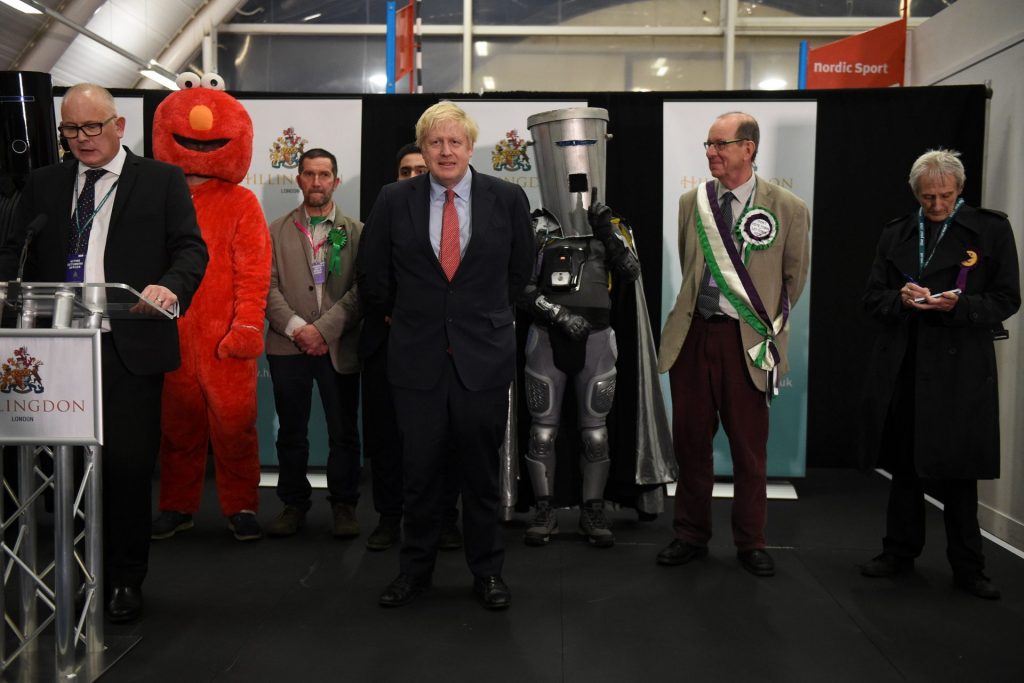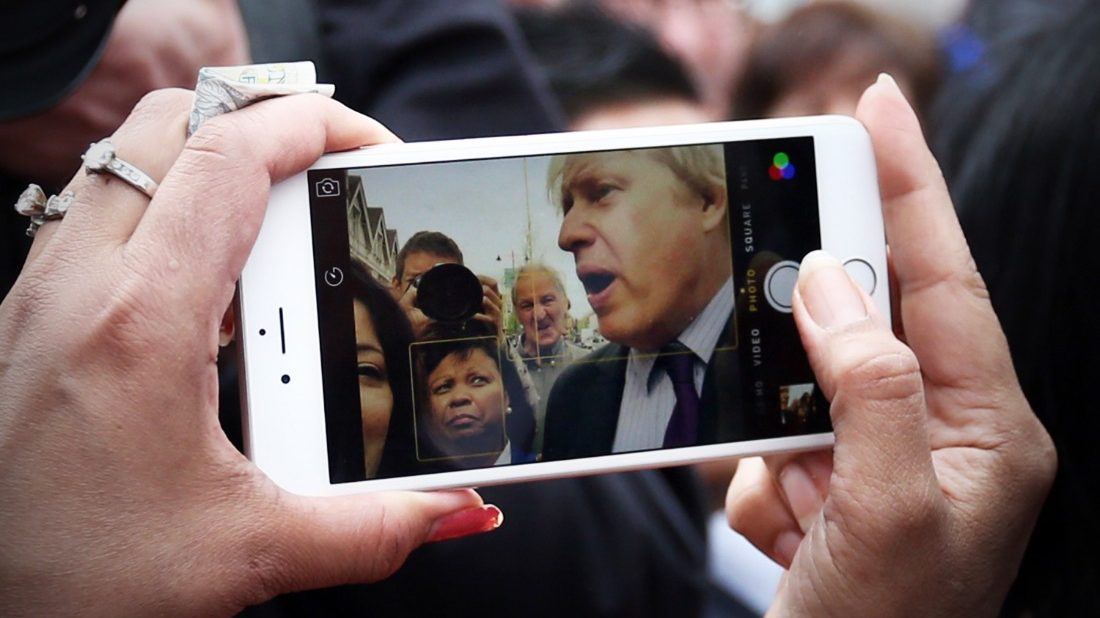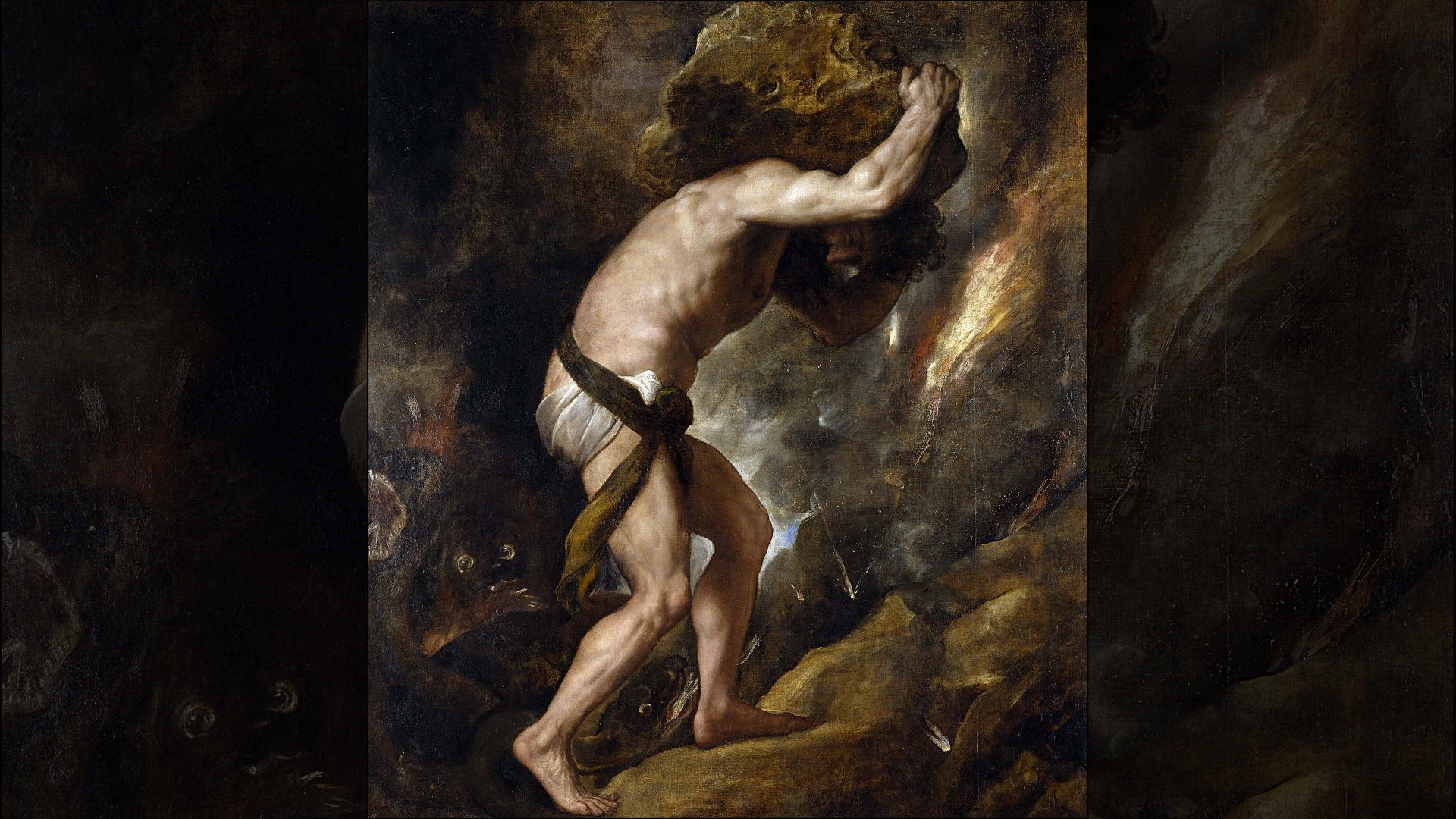Rishi Sunak’s plan to rework the Northern Ireland Protocol with the EU has brought Boris Johnson back out on manoeuvres. The former prime minister may sense an opportunity to stage his longed-for Churchillian return to No 10. Yet Johnson’s political fate may lie not in Belfast, Brussels or Westminster – it might just lie in Uxbridge and South Ruislip.
On a crisp, sunny Sunday morning in February, Danny Beales, Labour’s challenger to Johnson in his own constituency, is on manoeuvres too, campaigning with a dozen fellow party activists. He does this every weekend, even though the next election may not be held until January 2025. “We’re hitting the doorsteps already,” he says. “We’re not waiting because we’ve got months to burn.”
It’s a time-consuming slog, knocking on doors that do not open, or occasionally having them shut in your face. But Beales, 34, a personable and well-groomed redhead, finds plenty to encourage him. At the first house he visits, Tony, a fire brigade maintenance worker, tells him: “I hate to say it, but yes, I voted for Johnson last time.” Never again, he quickly adds. “Isn’t he in Ukraine at the moment, doing a world tour? He’s never here. We need someone who’s listening to people.”
At the second house, Pam, a retired local government worker, says she has only voted twice in her life – once for Brexit and once for Johnson. Next time she probably won’t vote at all. “The government’s hopeless,” she says.
At the third, a young PhD student, Nicholas Leybourne, declares himself a “staunch Conservative”, but admits he now has doubts. “I probably will vote for Johnson next time, but compared to a few months ago, I’m considering other options.”
And so the day goes on. Beales and his colleagues are campaigning in Yiewsley, the constituency’s poorest ward, but in the more affluent neighbourhood of South Ruislip, where I conducted my own deeply unscientific vox pop outside Sainsbury’s, Johnson’s support seems remarkably soft, thanks to the dire state of the nation and his scandal-plagued premiership. And it was not all that firm to begin with. In 2019, in much more propitious circumstances, he won with a majority of just 7,210.
With Labour presently leading the Tories by more than 20 points in most opinion polls, Beales needs a swing of 7.48% for victory. Uxbridge is the Conservatives’ 103rd most vulnerable seat and, according to the political forecasting website Electoral Calculus, if the election were held today his chances of beating Johnson would be a startling 92%. “You can never write Boris Johnson off, but it’s an uphill struggle on the current polling,” says Martin Baxter, the website’s founder.
In a similar vein Britain Predicts, a forecasting service created by the website Britain Elects and the New Statesman magazine, calculates that Beales would presently win 52.3% of the vote to Johnson’s 33.7%. “If Uxbridge voted today, it would damningly vote against the Conservatives, and/or Johnson,” says Ben Walker, co-founder of Britain Elects.
Johnson’s defeat would be a seismic event in British politics, one that would eclipse even the so-called “Michael Portillo moment” when John Major’s defence secretary lost Enfield Southgate in 1997, heralding a landslide general election victory for Tony Blair’s New Labour. He would become the first former prime minister ever to lose his seat, certainly in modern times, and in a constituency that has not voted Labour for more than half a century.
Moreover, Johnson’s reputation for being the Conservative who can woo sections of the electorate that other Tories cannot reach would be severely damaged, and with it his hopes of one day regaining the Conservative leadership. In his absence, the outcome of the post-election battle for the party’s proverbial soul could be very different.
Johnson is concerned. He has visited Uxbridge at least seven times since October 31, tweeting characteristically boosterish videos of himself in a school, park, pub, synagogue and tube station, at a small business exhibition, a charity and local football club, and with a family hosting Ukrainian refugees. In the 10 months before that, according to his Twitter feed, he appears to have visited just three times – he has visited Ukraine more frequently than his own constituency. Admittedly he was prime minister for much of that period, but it was Johnson who accused the then-mayor of London, Ken Livingstone, of visiting Havana more than Havering.
In November last year Johnson asked a question in the Commons about the future of Hillingdon police station. The Guardian noted that it was only the fourth question he had asked about his constituency in seven-and-a-half years as its MP, and that two of those were on a single day in 2015. “If the election was tomorrow,” said Beales, “I think I’d stand a good shot.
Uxbridge and South Ruislip is a suburban constituency on London’s western fringes, a nondescript place for a politician as colourful as Johnson. It is ringed by the M4, M25, A40 and Heathrow. Its most distinctive features are Brunel University, RAF Northolt and Coca-Cola’s UK HQ.
The local Conservative association selected Johnson as its candidate in 2014 when he was mayor of London, but had set his sights on higher office (Suella Braverman was also on the constituency shortlist). During the selection process he promised to consider buying a home in the constituency. He never did.
From his predecessor, John Randall, now Lord Randall of Uxbridge – a popular local man whose family owned Uxbridge’s main department store – he inherited a majority of 11,216. In 2015, Johnson entered parliament with a majority of 10,695. The following year the constituency voted for Brexit by 57% to 43%.
Johnson had led the Leave campaign, but Uxbridge and South Ruislip did not exactly embrace him. In Theresa May’s ill-judged general election of 2017 his majority slumped to 5,034 over Labour, which would become the smallest majority of any sitting PM since Ramsay MacDonald won Aberavon by 2,100 votes in 1924.

In 2019, by which time Johnson was in No 10, he and his party won a “stonking” majority of 80 seats against Jeremy Corbyn’s Labour, but his own majority in Uxbridge rose to just 7,210. And that was against a Labour candidate, Ali Milani, who was a Momentum-backed Corbynista with a record of antisemitic tweets for which he had to apologise on LBC Radio.
As foreign secretary, Johnson had done himself no favours by flying to Afghanistan to avoid a crucial Commons vote on the expansion of Heathrow. When first elected he had promised to lie in front of the bulldozers to prevent that happening.
He now faces a far stronger opponent than Milani, thanks in part to an intervention by the London Labour Party. That helped to ensure that Beales, a Starmer supporter and long-serving Camden councillor, beat an inexperienced 22-year-old named Connor Liberty for the nomination.
This time round, the Reform UK party plans to run a candidate, Mark James, who threatens to chip away at Johnson’s support from the right. Johnson has not faced that issue before.
Beales has a backstory that contrasts starkly with that of his Old Etonian opponent. He was born and raised in the constituency. His parents divorced when he was three. When he was 15, his mother lost her job with a funeral director, and the flat above the premises that went with it. Unable to get a council flat, she and her son moved to Northampton, where they veered between grandparents, hostels and homelessness for several years.
He joined the Labour Party in his teens because, he says, “seeing my mum struggle, seeing her working not just one but two jobs and still unable to pay the bills, just felt inherently unfair.” He also came out as gay.
Beales became the first of his family to go to university. He read politics at the London School of Economics, then gained a master’s degree in social policy and planning. To finance his studies he worked for Sally Keeble, then Northampton North’s Labour MP. In 2014, aged 25, he was elected to Camden Council. He is now a cabinet member responsible for new jobs, homes and community investment, and works by day for the National Aids Trust.
Blaise Baquiche, 30, the Liberal Democrat candidate for Uxbridge and South Ruislip, also has an interesting backstory. He used to work for Conservative MEPs in the European parliament before defecting after the Brexit vote, and has since obtained a Portuguese passport under a law granting citizenship to descendants of Jews expelled from the Iberian peninsula in the 1500s. He now has dual nationality.
In 2021 his father, Joel, 69, contracted Covid-19. Neither Baquiche nor his siblings could visit him during the month he spent in the Chelsea and Westminster hospital before his death. Later he learned that Johnson’s team at No 10 were hosting lockdown parties at that time. “It’s sickening,” he says. “I feel like I represent hundreds of thousands of families in a similar predicament.”
Beales plans to buy a flat in the constituency and insists he will run a positive campaign based on local issues. “My platform is that I’m here for the community. I’m from the area. I know the area. I’ll be a full-time MP working hard on the issues people care about,” he says. “I’ve experienced homelessness and not having heating and struggling to eat. For thousands of people in this area that’s their daily existence after 13 years of Tory government.”
The election will inevitably be a referendum on Johnson, and his Achilles heel is obvious. Beales calls him a “part-time MP who spends most of his time jetting around the world”. He continues: “It very much seems like about once a year that he drives into Uxbridge high street, does a quick walk down it with a film crew in tow, takes some snaps, tweets, gets back in his car and drives off.”
Baquiche agrees. He says Johnson posts “an occasional Twitter montage of a hospital or a pub”, but in reality his constituents “feel like they’ve not had an MP for the last seven years”.
Johnson’s Twitter campaigning – a stark contrast to Beales’s assiduous doorstepping – certainly generates some scepticism.
In late 2021 he tweeted a picture of himself surrounded by children at a South Ruislip nursery. Last year the local Tory-run Hillingdon Council announced plans to close that nursery and two others. The parents appealed for help, but Johnson declined to intervene on the grounds that it was a council decision.
“He offered minimal support despite having earlier visited one of the nurseries for what would appear to be PR reasons,” one of the parent organisers tells me. “He failed to respond to the campaigners’ emails, and even cancelled a meeting with the parents’ leaders at the last minute.”
Last November Johnson visited Wealdstone Football Club, which is fighting to renew its lease. Nick Symmons, its operations director, said he arrived with a cameraman, swiftly filmed two videos of himself on the pitch, and posed for pictures that appeared in various newspapers. He also met the directors and agreed to write to the leaseholders, but months later nothing had come of it.
Was it the visit of a genuinely concerned MP, or a glorified photo-op, I asked? “A little bit of both,” Symmons replied diplomatically.
Reinforcing the perception that Johnson’s interest in the constituency is skin deep, the deposed former prime minister recently wrote an article for the Spectator in which he referred to “this unexpected hiatus” in his political career. Beales called that “incredibly disrespectful” and “deeply offensive”, adding: “I think being an MP is a full-time job.”
To speak to Richard Mills, the chair of the Uxbridge and South Ruislip Conservative Association, Johnson’s election agent and a Hillingdon councillor, I have to ambush him at his monthly surgery in South Ruislip’s library one Saturday morning.
Mills is certainly concerned about Johnson’s re-election prospects. He acknowledges that “the national picture is against us”, that the Partygate scandal was unhelpful, and that the Reform UK candidate could eat into the Conservative vote. He urged Reform UK not to stand, arguing that Johnson had delivered “absolutely everything they wanted” and “they are purely splitting [the right-wing] vote.”
He also acknowledges the perception that Johnson does not visit the constituency very often, but says it is unfair. He says Johnson regularly holds unpublicised surgeries in Uxbridge civic centre. “Probably fortnightly or monthly,” he replies when asked how often. But he still believes Johnson will win. “I’d think it’s odds on. I’d expect him to hold the seat,” he says.
Mills defends Johnson’s record, saying he has been a driving force in securing a new Hillingdon hospital. The council recently granted planning permission for the project, though the government has yet to allocate the funds. When I put this to Beales, he responded: “Planning permission doesn’t put a spade in the ground. You need hard cash.”
Mills also says that Johnson has put more police on the streets. Beales counters that he has simply restored some of the officers the Conservatives cut in 2010. Beyond that, Mills points out that forthcoming boundary changes will add another staunchly Conservative ward, Ickenham and South Harefield, to the constituency. The Tories already control every ward in Uxbridge and South Ruislip save Yiewsley, giving them “a solid base of local councillors and activists who will come out and do the legwork”.
He believes the economy will improve by the next election, and that there is sympathy for Johnson within the constituency over the way he was ousted from Downing Street and treated in the media. If anyone can buck the trend, he adds, it is Johnson. “He attracts people who would not normally have any interest in politics or the Conservative Party… He gets some hassle, but the same people want a selfie with him.”
Mills would be much more worried, he admits, had Labour selected a “heavyweight” like David Miliband, Ed Balls or Andy Burnham to run against Johnson. Or, presumably, if the various progressive parties had agreed to unite behind Beales. Labour, the Lib Dems and Greens all deny any discussion of an electoral pact, though the casual observer might ask why not.
For a more impartial assessment of Johnson’s chances I meet Lord Randall, his long-serving predecessor as Uxbridge’s MP, in the Pugin room at the House of Lords. He says he would vote for Johnson to keep Labour out, but is evidently not a huge fan. “I’d say he has a 60-40 chance of holding the seat,” Randall says, citing Johnson’s undoubted campaigning skills and stardust. “Everything is up for grabs, but you can’t deny his personality.”
The one other possibility is that Johnson will abandon Uxbridge for a safer seat – he is reportedly about to buy a £4m nine-bedroom, Grade II-listed home in Oxfordshire, close to his former constituency of Henley, where the 67-year-old Tory MP John Howell has a 14,503 majority and may be ready to stand down, though he is no friend of Johnson. Mills has heard the rumours, but says Johnson has personally assured him they’re not true and, at Mills’s urging, told the Daily Telegraph as much.
Beales is not convinced. “Boris Johnson will do what’s in Boris Johnson’s interests,” he says. Were he to jump ship “it would confirm exactly what we all suspect – that he doesn’t give a damn about Uxbridge and South Ruislip, and it was only a springboard to get into No 10.”
Martin Fletcher is a former foreign correspondent and British feature writer of the year



